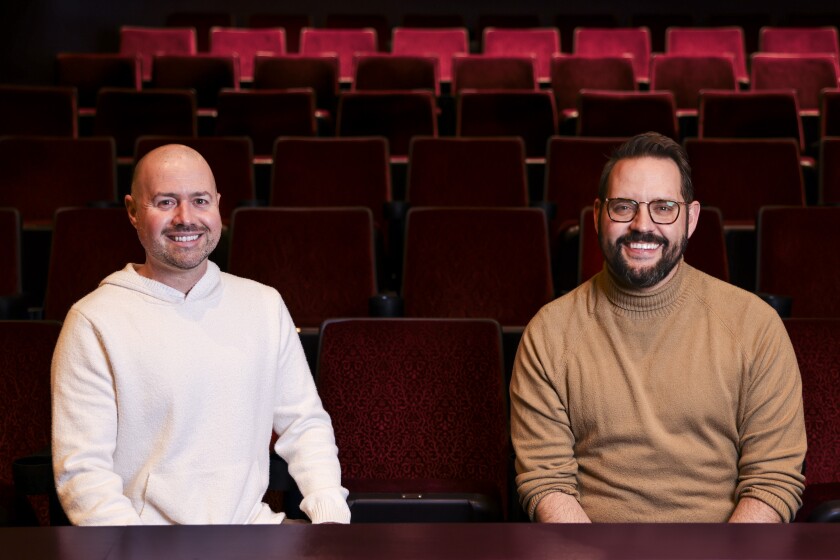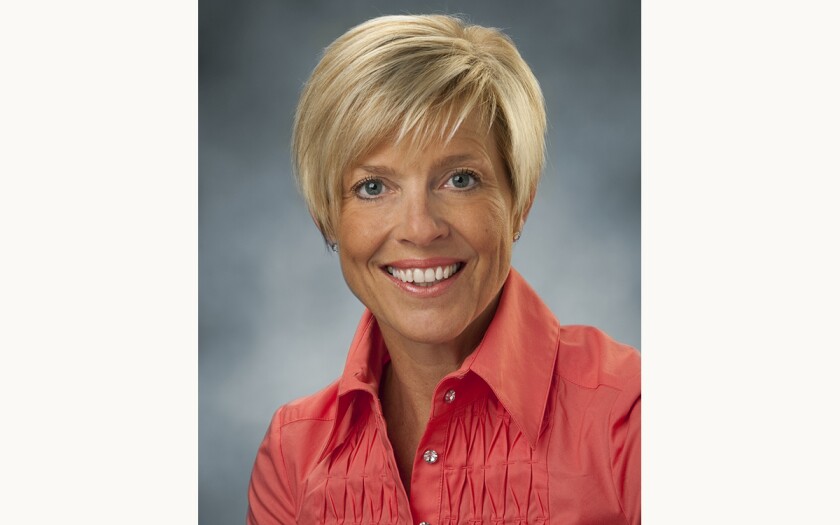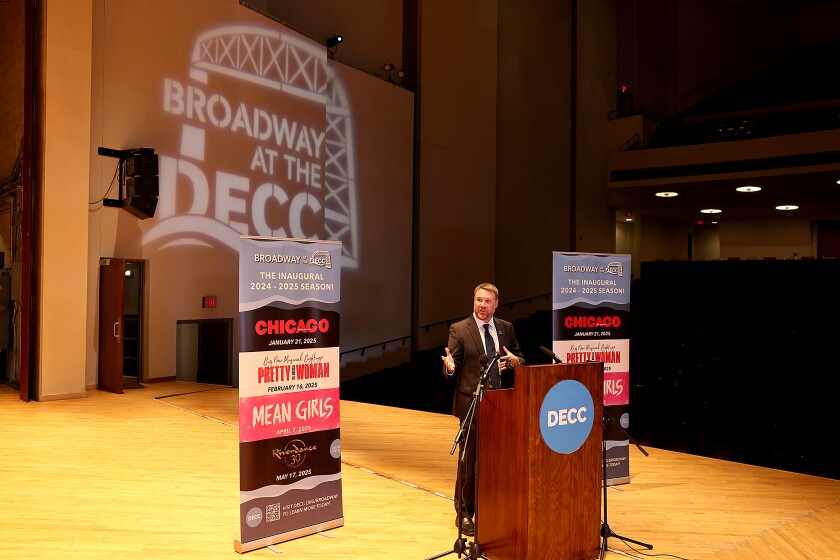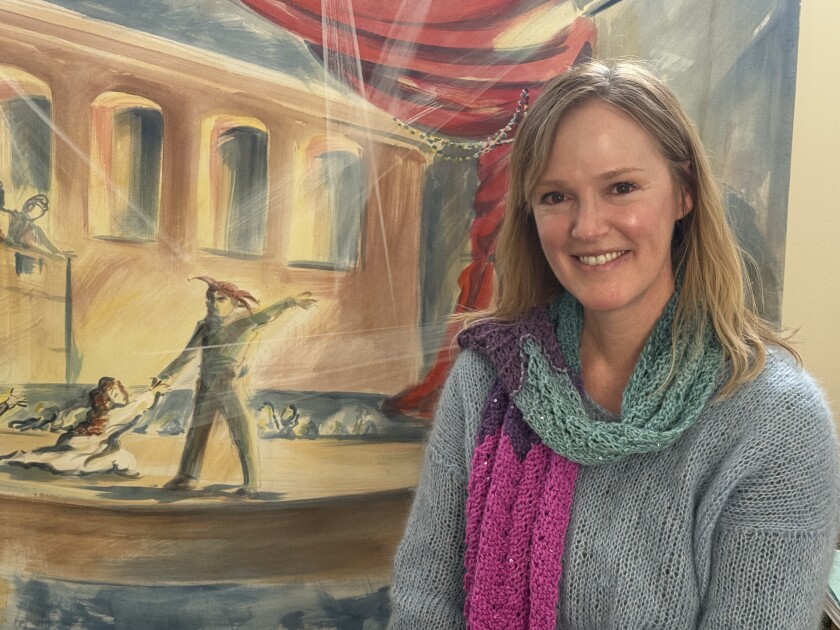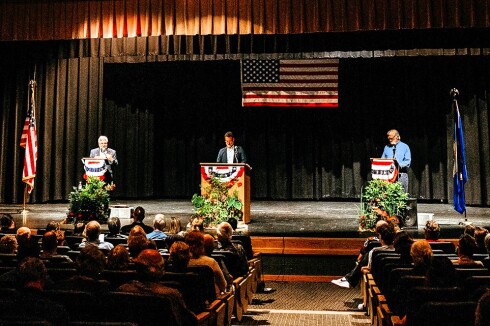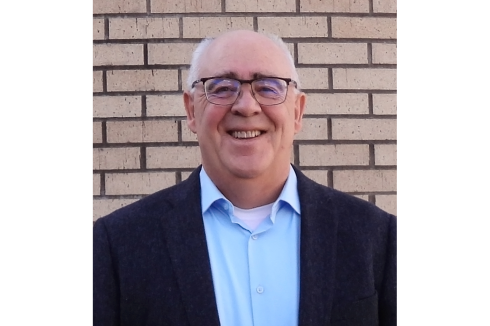DULUTH — Phillip Fazio and Christine Gradl Seitz had two long lists. One was a list of all the skills Duluth Playhouse needed for Seitz's successor as executive director, and the other was a list of the candidates they had considered for the position without finding the right fit.
"There just never seemed to be the right person for this organization at this moment in time that checked all the boxes," remembered Fazio. "She was like, 'Do you know anyone that does all this, that we can ask to apply?' I was like, 'Hang on one second.'"
ADVERTISEMENT
"I got a text from Phillip," remembered Wes Drummond, "saying, 'Wesley...'"
The year was 2021, and both men were a year past completing their Master of Fine Arts at Penn State. Drummond, then living in New York, had never been to Duluth — but then, neither had Fazio when he successfully applied to become the Playhouse's producing artistic director in 2020.
By now, the two have both become familiar faces to Playhouse patrons who have seen them bound onstage together to welcome audiences to the NorShor Theatre, as well as to artists who have worked with one or both in putting on shows.
In its transition from having a single person handling both leadership roles — organizational and artistic — the Playhouse could hardly have found a pair of people more closely aligned in what are now two different positions.
"Their leadership at the Playhouse is kind of remarkable," said Justin Peck, president of the organization's board. "It's always done in collaboration. Either of them could — can and do — step into the other's shoes when necessary."
Last month, Drummond and Fazio sat down together in the NorShor lobby as set construction was underway for "Cinderella," a Fazio-directed musical opening Friday.
"I used to put on shows in my backyard," said Fazio. "When I was 12 years old, I put on a production of 'Cinderella,' and now, 30 years later, I'm doing it again with a little bit bigger budget."
ADVERTISEMENT
Under Seitz, the Playhouse transitioned from being "a true community theater," said Peck — one paying little, and producing shows technically considered amateur — to a professionalizing organization that has increased artist pay by "an order of magnitude."
Artist pay is a shared value for Fazio and Drummond, they said, but increasing pay is also a business imperative.
"In order to afford this building and to afford to operate, we have to operate as a professional regional theater," said Drummond. "Audiences want a certain caliber of show."
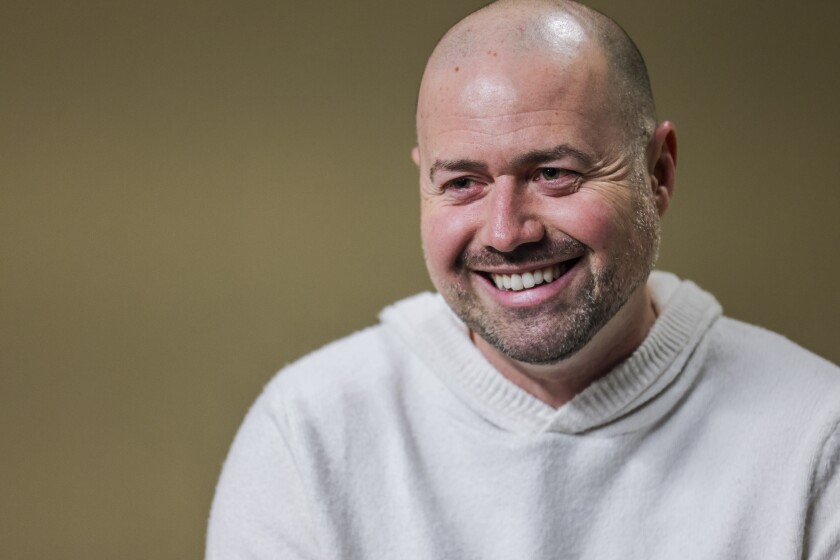
Fazio arrived in the thick of the COVID-19 shutdown. The Playhouse was still operating at limited capacity when Drummond joined a year later. There was no guarantee the Playhouse would even survive the pandemic's massive disruption.
"Regional theaters around the country were closing left and right," remembered Drummond. While the Playhouse is a large organization for a city of Duluth's size, the company proved small enough to adapt as conditions evolved.
"We can get the full staff in the same room in a day," Drummond said, "and have a conversation and start to problem-solve."
Not only did the Playhouse survive the pandemic, it's emerged onto an expanding local theater landscape. Since pandemic restrictions lifted, Zeitgeist and The Boat Club have both launched full seasons of original plays.
ADVERTISEMENT
Meanwhile, the Duluth Entertainment Convention Center has announced the return of a regular season of touring Broadway theater — shows that don't use local talent onstage, but indicate a continued "audience building" for live theater, said Peck.
"Artists have been able to stay here," said Peck about Duluth. "They can stay in this community because they are making enough to make it worthwhile. In fact, sometimes we get artists relocating, coming here, because they know that there's great work to be done with more than one phenomenal organization."
It may seem unlikely that the two people at the center of this growth are both from out of town, given that newcomers sometimes complain Duluth's social circles are hard to break into.
"Theater is such a collaborative art form that you're constantly interacting with a ton of different businesses and organizations in town," Drummond observed. "Also, theater is one of those art forms that the your personal life and your work life are kind of blurred, and it all just kind of folds in."
It doesn't hurt that since Drummond's arrival, the two have been able to lean on one another — but Peck insists their existing friendship was a happy side benefit of hiring Drummond, who was "the clear winner" for the job of executive director.
"If we had brought somebody else in, I'm not sure, in retrospect, that that they would have been able to achieve the kind of partnership that that Phillip and Wes have," Peck said. "It's lucky for us that (Drummond) was exceptional on paper and exceptional in the interview."
In another context, the pair's very similar backgrounds — both were mid-career directors when they began their shared graduate program — could create friction. In this case, though, while both Fazio and Drummond have been involved in the artistic side of the organization, Drummond has embraced the administrative aspect of his job.
ADVERTISEMENT
"I really enjoy this position a lot more than I even expected to," said Drummond, who is a native of Kentucky. "To see what it takes, administratively, financially, to allow the art to happen. Because I'm so passionate about the art itself, it's cool to dig into the details of what's required."
Meanwhile, Fazio, who still has the passion he brought to those backyard shows in his home state of Arizona, is enjoying his "dream job" as an artistic director.
"Being an artistic director, you get to direct," he said. "You also get to run a theater. You get to pick a season of shows that's awesome."
For both men, there's been a lot of on-the-job learning. "It feels like we got our MFA at Penn State," said Drummond, and now "we're getting our Ph.D."
Having kept the Playhouse afloat and filled the NorShor, Fazio and Drummond have high hopes for the future.
"My dream is that we win the regional theater Tony Award," said Fazio.
That would make the Playhouse the first Minnesota organization outside of Minneapolis to win that prestigious honor — putting it in the company of the Guthrie Theater, the Children's Theatre Company, and the highly influential (though now defunct) Theatre de la Jeune Lune.
ADVERTISEMENT
One measure of those organizations' success is that each brought new reserves of talent to the Twin Cities theater scene, which has achieved tremendous national impact despite being far from the country's biggest population centers. Peck sees a similar phenomenon taking seed in Duluth.
"The fact that these other theaters are popping up and having such success is an indicator of the fact that the Playhouse is doing the right thing," said Peck. "A rising tide raises all boats."
For now, both Drummond and Fazio are looking forward to "Cinderella," which follows the success of another Rodgers and Hammerstein show — "The Sound of Music" — last December.
"Over 10,000 people saw that show, in a community of about 85,000," Fazio pointed out. "I don't know of any other theater that can say, over 10% of the population of our city saw our production. That's pretty incredible."
This story was updated at 10:34 a.m. Dec. 4 to correct the date of the News Tribune's interview with Wes Drummond and Phillip Fazio. It was originally posted at 6 a.m. Dec. 4. The News Tribune regrets the error.

